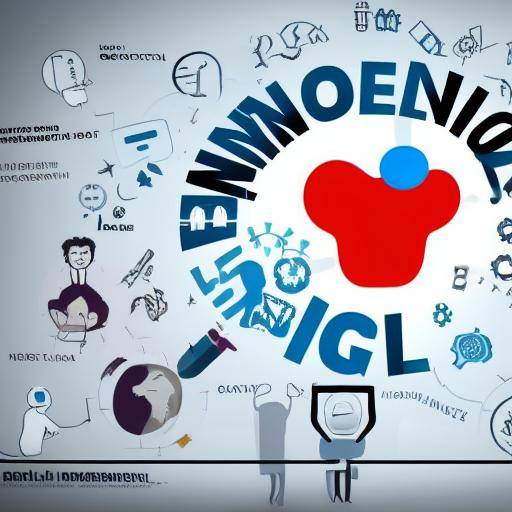
Introduction
In the digital era, networking and social intelligence play a key role in personal development and success. The ability to establish meaningful connections, understand social dynamics and effectively navigate in interpersonal relationships environments has become an essential aspect to prosper both in the personal and professional spheres.
In this article, we will explore in depth the impact and importance of social intelligence in networking, analyzing its historical evolution, benefits, challenges, practical applications, future trends and much more. In addition, we will provide practical advice, case studies and expert opinions to provide a complete perspective on this topic so relevant today.
History and Background
Contact networks, understood as the interconnection of individuals for professional or personal purposes, have deep roots in the history of humanity. From the old trade routes to the 18th century literary halls, the human being has understood the importance of establishing and maintaining networks of contacts. With the advent of the digital era, these networks have reached an unprecedented global reach.
Social intelligence, for its part, has been an inherent aspect of human relations since time immemorial. However, it has become a more formal subject of study in recent decades, as experts have begun to understand its impact on personal and professional success.
Analysis in Deep
Benefits and Challenges
Contact networks offer a number of benefits, such as job opportunities, mentoring, access to resources, shared knowledge and a sense of belonging. However, they also present challenges, such as maintaining genuine relationships, managing time and balancing reciprocity in interactions.
Social intelligence, meanwhile, allows people to understand and manage their own emotions, develop empathy, establish solid relationships and overcome interpersonal conflicts. However, their lack can lead to difficulties in managing social situations, negotiations and leadership.
Comprehensive review
Social intelligence is fundamental in networking, as it allows people to understand the needs and motivations of others, thereby strengthening connections and collaboration. Their application in working environments can enhance productivity, innovation and teamwork.
However, effective management of a network of contacts requires specific skills, such as the ability to establish authentic relationships, the ability to communicate clearly and persuasively, and the ability to adapt to different cultural contexts.
Comparative analysis
By comparing networks of contacts, social intelligence and its impact on personal success, it is clear that these areas are intrinsically interconnected. Contact networks provide opportunities and resources, while social intelligence allows the effective capitalization of such connections, generating lasting and mutually beneficial relationships.
It is crucial to recognize the importance of authenticity and reciprocity in these interactions, as well as the need to develop a solid emotional intelligence to maximize the opportunities that arise through an established network of contacts.
Practical Tips and Accessible Recommendations
- Keep a balance between giving and receiving within your networking relationships.
- Develop your emotional intelligence by practicing empathy and active listening.
- Look to provide value to your contacts before requesting any favor or support.
- Set specific goals for expanding and strengthening your network of contacts.
- Find opportunities to apply your social intelligence in everyday situations.
Industry Perspectives and Expert Reviews
According to experts in the area, the domain of social intelligence is increasingly valued at work. Companies seek candidates with skills to build solid relationships and effectively manage interpersonal conflicts, recognizing the positive impact that these skills can have on organizational performance.
Case studies and practical applications
An outstanding example of the importance of social intelligence in networking is in the business realm, where the ability to understand and anticipate the needs of customers, to effectively collaborate with colleagues and to establish strategic alliances can be crucial for business success.
Future Trends and Predictions
As the world continues to move towards an information and connection-based economy, the nature and relevance of networking and social intelligence are expected to continue to evolve. Emerging technologies, such as artificial intelligence and virtual reality, will likely transform the way in which networks of contacts are created and maintained, while social intelligence will become an even more valuable asset in highly collaborative and customer-centred working environments.
Conclusions
In conclusion, social intelligence plays a key role in the creation and effective management of networking. Its impact on personal and professional success is undeniable, and its domain can mean the difference between maximizing opportunities and stagnating in superficial relationships.
We hope that this article has provided a comprehensive and useful insight on the importance of social intelligence in networking, as well as practical advice and expert perspectives to apply these principles in everyday life.
Frequently asked questions
1. What is more important, the amount or quality of contacts in a networking network?
Both are important, but the quality of contacts tends to have a greater impact on the generation of significant opportunities. It is preferable to have a limited number of strong and committed contacts that can provide substantive support.
2. How can social intelligence be improved?
Social intelligence can be improved through the continued practice of empathy, active listening, emotional self-control and the awareness of social dynamics. Training in communication skills can also be of great help.
3. What is the role of social intelligence in the digital era?
In the digital era, social intelligence is fundamental to understanding and adapting to the dynamics of online interactions, as well as to maintain meaningful relationships despite physical distance.
4. Can social intelligence be developed in the professional field?
Yes, social intelligence is a skill that can be developed and perfected over time through experiential learning, feedback and specific training on social and emotional skills.
5. What is the importance of authenticity in managing networks of contacts?
Authenticity is crucial to building lasting and meaningful relationships in a network of contacts. People tend to feel attracted and trust those who show transparency and coherence in their interactions.
6. What are future trends in networking and social intelligence?
Emerging technologies, such as artificial intelligence and augmented reality, are expected to transform the way in which networks of contacts are created and maintained, while social intelligence will become an even more valuable asset in highly collaborative and customer-centred working environments.
With this in mind, it is evident that social intelligence plays a fundamental role in creating networks of contacts, and its understanding and dominance can be the catalyst for personal and professional success in today's society. Let's make the most of our social interactions!






















































